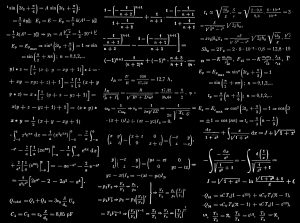The Role of Abacus Maths in Developing Concentration and Focus

Keeping kids focused and concentrated is becoming increasingly challenging in today’s fast-paced world. With distractions from digital devices, social media, and a constant stream of information, many students struggle to concentrate on their studies and build essential cognitive skills. Digital distractions are at an all-time high, making it a significant challenge for Indian parents and educators to foster concentration and focus in children. Concentration is vital in our busy lives, whether for daily chores or solving complicated problems. Despite its importance, maintaining a high level of concentration is tough for many, especially children who get easily distracted.
One effective solution is abacus math, an ancient tool often overlooked in modern education. Abacus math enhances numerical skills and plays a crucial role in developing concentration and focus. Abacus classes have shown remarkable potential in enhancing focus and concentration among learners, helping them excel in academics and beyond.
This article explores how abacus education positively impacts focus and concentration, contributing significantly to brain development. Through consistent practice with the abacus, students can improve their attentiveness, along with other activities like playing problem-solving games, exercising, and getting enough sleep.
To maintain continuous concentration in children, parents must first understand the signs of a lack of attention.
Signs of a Lack of Concentration
-
Difficulty Learning and Remembering: Children who struggle with concentration often find it hard to absorb new information and retain what they have learned.
-
Inability to Focus on Schoolwork and Daydreaming: A wandering mind can be a significant barrier to completing tasks and performing well academically.
-
Frequent Loss of Items and Disorganization: Misplacing belongings and having a messy workspace are common signs of inattentiveness.
-
Poor Handwriting: Compared to peers of the same age, a child with concentration issues may have less legible handwriting.
-
Aggressiveness or Moodiness: Emotional volatility can sometimes stem from frustration due to an inability to focus.
-
Weak Motor Skills: Difficulty with activities like running or jumping can also indicate a lack of concentration.
Tips to Help Improve Concentration Levels Among Kids
-
Break Down Large Tasks: Simplify complex problems into smaller steps, making it easier for children to focus and stay engaged.
-
Regular Practice: Consistent abacus exercises train the brain to sustain attention, enhancing concentration and cognitive skills.
-
Physical Activity and Sleep: Regular exercise and adequate sleep boost overall brain health, aiding in better focus during abacus practice.
-
Consistent Study Routine: Studying abacus math at the same time daily helps condition the brain to focus, reducing stress and improving concentration.
-
Take Breaks: Short breaks between sessions prevent cognitive overload, allowing better focus when returning to tasks.
-
Set Timed Goals: Clear targets and timers for abacus exercises create urgency and motivation, enhancing concentration.
-
Incorporate Puzzles: Engaging in puzzles and problem-solving games alongside abacus practice boosts concentration and problem-solving skills.
-
Mindfulness Techniques: Practices like deep breathing and meditation help children stay calm and focused during abacus math tasks.
Enhancing Concentration and Focus through Abacus Math
In an age where distractions are everywhere and attention spans are shrinking, abacus math offers a refreshing and effective way to improve children’s focus and cognitive skills. Here are several ways abacus math can enhance concentration and mental sharpness:
-
Enhanced Attention Span: Abacus math requires kids to focus continuously on the beads and their movements. Unlike digital devices that often fragment attention, using an abacus trains children to maintain their focus for extended periods, thereby lengthening their attention spans.
-
Improved Visualization Skills: As children progress, they start visualizing the abacus in their minds to perform calculations. This mental exercise demands a high level of concentration and helps them focus on abstract concepts without needing physical aids, boosting cognitive abilities and spatial reasoning.
-
Sequential Processing: Solving problems on an abacus involves following a series of steps in a specific order. This method teaches kids to concentrate on one step at a time while keeping the overall task in mind, enhancing their ability to follow complex instructions and perform tasks methodically.
-
Error Detection and Correction: The hands-on nature of abacus math encourages kids to spot and correct their mistakes in real-time. This immediate feedback sharpens their focus and attention to detail, promoting a mindful and meticulous approach to learning.
-
Multisensory Learning Experience: Abacus math engages multiple senses, including sight and touch, stimulating the brain and improving cognitive processing. This multisensory experience enhances concentration and helps children understand mathematical concepts more deeply.
-
Breaking Down Complex Problems: Abacus education simplifies complex problems into manageable steps, reducing mental overload and improving concentration and accuracy. By breaking tasks down, kids can focus better and tackle problems with greater confidence.
-
Patience and Perseverance: Consistent practice with the abacus builds discipline and perseverance. Kids learn patience and dedication as they work through problems, improving their focus and motivation, which translates into better academic performance.
-
Improved Memory Retention: Regular abacus practice reinforces mathematical concepts, boosting memory retention. This repetitive exercise helps embed concepts in long-term memory, enhancing overall academic performance and cognitive abilities.
Conclusion
In conclusion, concentration is crucial for tackling problems and achieving success in life. As Haruki Murakami wisely noted, “The power to concentrate is the most important thing; living without this power would be like opening one’s eyes without seeing anything.” With so many distractions today, abacus math proves to be an invaluable tool for boosting focus and concentration.
Abacus math, especially through programs like SIP Abacus, engages multiple senses and encourages mental visualization. SIP Abacus offers structured courses that not only enhance mathematical skills but also strengthen overall cognitive abilities. Their approach breaks down complex tasks into simpler steps, helping students stay mindful and reducing cognitive overload. This structured method fosters patience and perseverance, essential for maintaining focus.
SIP Abacus provides a solid foundation for academic excellence and personal growth. By incorporating SIP Abacus courses into your child’s education, you can equip them with valuable skills that extend beyond math, preparing them to face future challenges with confidence. Explore SIP Abacus courses here to see how they can help your child thrive academically and develop crucial life skills.



